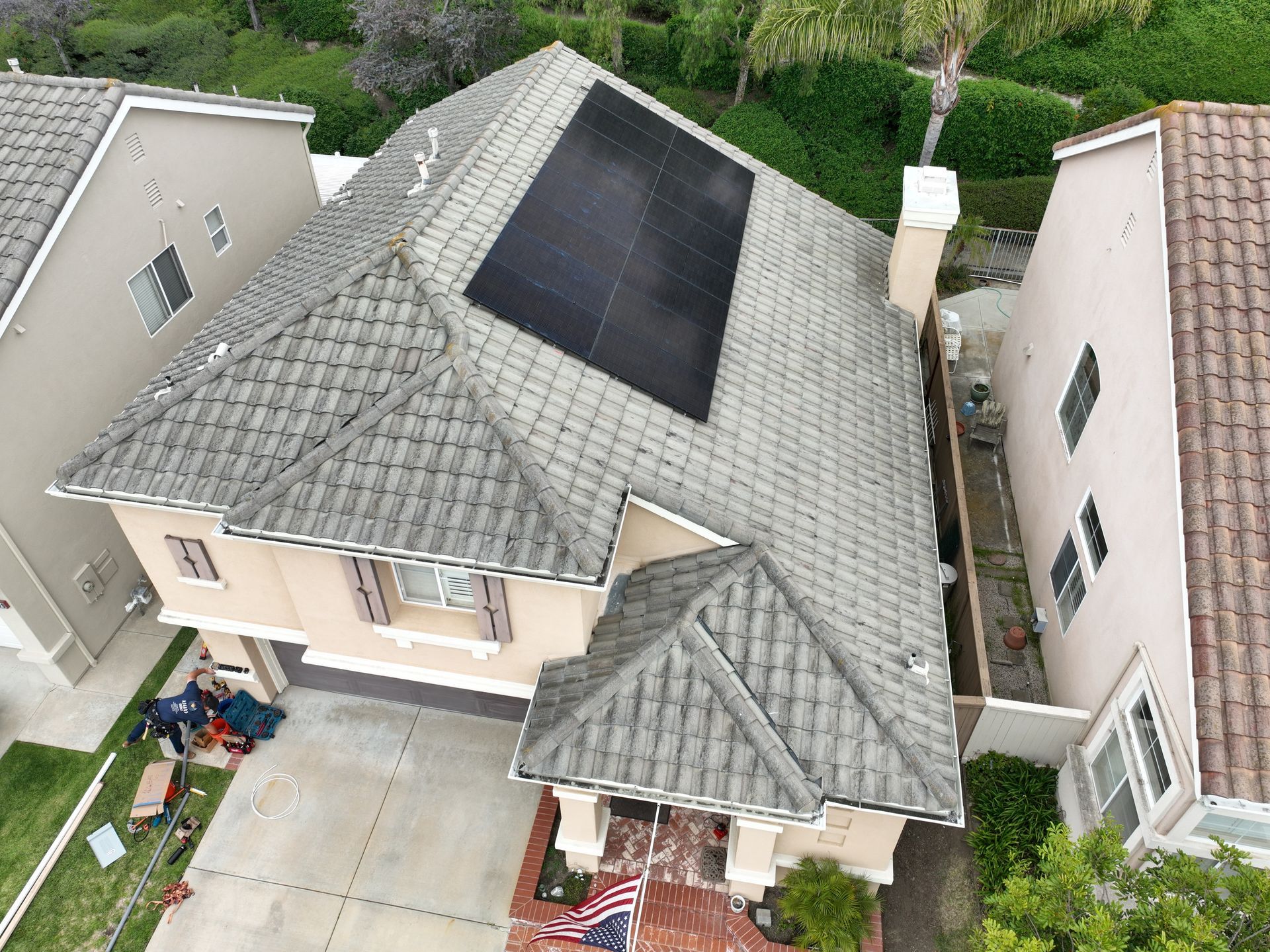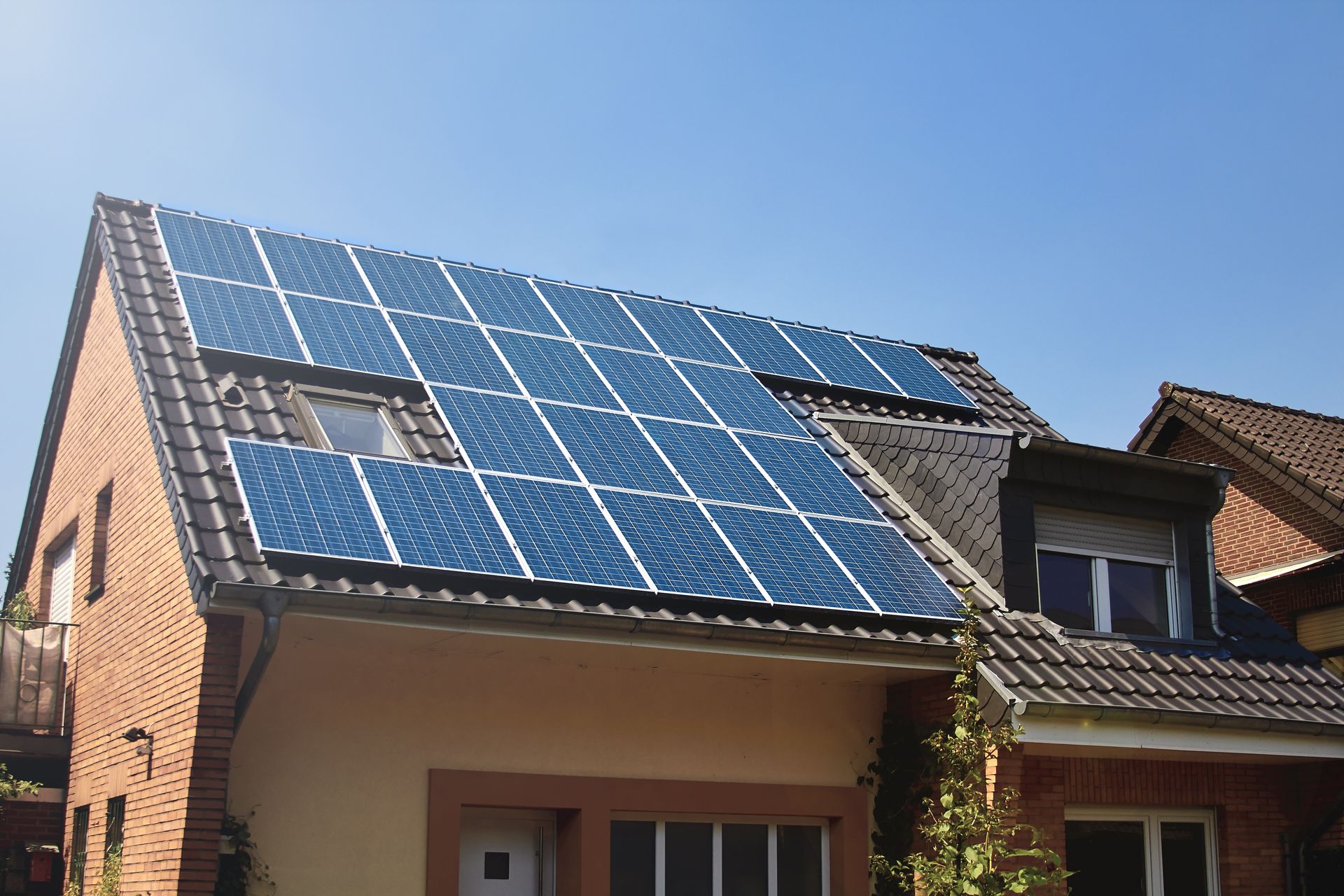Shining a Light on Solar Panel Efficiency: What You Need to Know
Maximizing the Sun's Potential: A Deep Dive into Solar Panel Efficiency
Solar panel efficiency is critical in maximizing energy production from your solar energy system. But what exactly does efficiency mean in the context of solar panels, and why does it matter for homeowners looking to make the switch to solar? This blog post delves into the intricacies of solar panel efficiency, exploring the factors that influence it and providing guidance on choosing the most efficient panels for your home and location.
What is Solar Panel Efficiency?
Solar panel efficiency refers to the portion of sunlight that a solar panel can convert into usable electricity. It measures how effectively a solar panel transforms solar energy into power, with a higher percentage indicating a more efficient panel. For instance, a panel with a 20% efficiency rate can convert 20% of the sunlight it receives into electricity.
Factors Affecting Solar Panel Efficiency:
Several factors can influence the efficiency of solar panels, including:
- Material: The type of material used in solar panels (e.g., monocrystalline silicon, polycrystalline silicon, thin-film) plays a significant role in determining their efficiency. Monocrystalline panels, for example, are known for higher efficiency rates than polycrystalline panels.
- Temperature: Solar panels perform best in cool conditions. High temperatures can reduce their efficiency, a factor particularly relevant in warmer climates.
- Orientation and Tilt: The direction your panels face and their angle can also impact efficiency. Panels that directly face the sun at the correct angle capture more sunlight.
- Shading: Shadows cast by trees, buildings, or other obstacles can significantly reduce the amount of sunlight hitting the panels, thus affecting their efficiency.
- Age: Solar panels degrade over time, leading to a gradual decrease in efficiency. However, modern panels degrade slowly, typically around 0.5% to 1% annually.
Choosing the Most Efficient Solar Panels:
When selecting solar panels, considering efficiency is crucial, but it's just one piece of the puzzle. Here are some tips for choosing the most efficient solar panels for your needs:
- Evaluate Your Energy Needs: Start by understanding your energy consumption. This will help determine the size and number of panels you need, which can influence the type of panel you choose based on efficiency.
- Consider Your Location: The climate and amount of sunlight your location receives can influence the efficiency of different types of solar panels. In areas with high temperatures, panels with better temperature coefficients are preferable.
- Look at the Long-Term Performance: High-efficiency panels may cost more upfront but can produce more electricity over the lifespan of your solar energy system, potentially offering greater savings in the long run.
- Don't Forget About Space: If your roof space is limited, opting for higher-efficiency panels will allow you to generate more power in a smaller area.
- Read Reviews and Compare Warranties: Research and compare different brands and models, focusing on efficiency ratings, customer reviews, and the warranties offered. A longer warranty period can indicate the manufacturer's confidence in their panel's performance and durability.
Solar panel efficiency is a key determinant of the performance and effectiveness of your solar energy system. By understanding what efficiency means, the factors that affect it, and how to choose the right panels, homeowners can make informed decisions that optimize their investment in solar power. As solar technology continues to advance, the efficiency of solar panels is expected to improve, making solar energy an even more attractive option for sustainable and cost-effective home power.
Ready to Explore Solar Options?
If you're considering switching to solar, Asgard Energy is here to help. Our team of experts can guide you through the process, from assessing your energy needs to selecting the most efficient solar panels for your home. Contact us today to learn more about how we can help you harness the sun's power efficiently and effectively.





